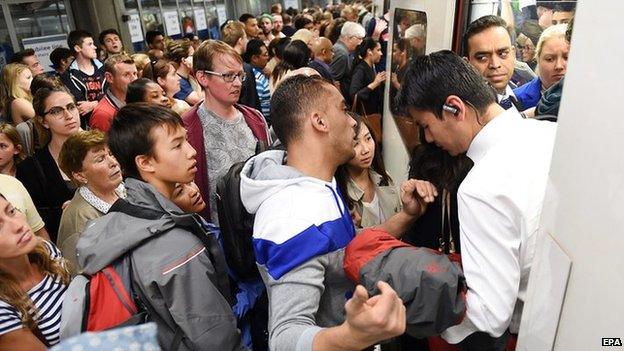Tube strike: London commuters deal with queues and delays
- Published
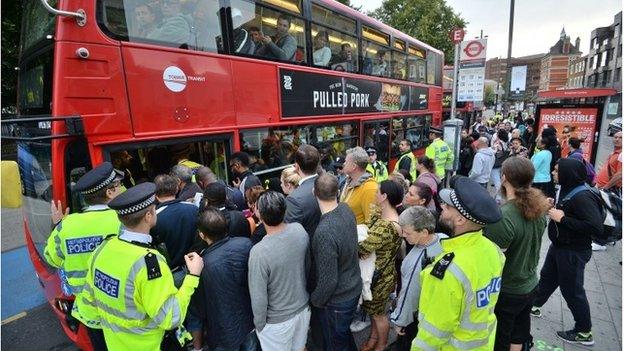
TfL said about 250 extra buses would be laid on during the strike to help deal with extra demand
Commuters are dealing with long queues and delays as they try navigating London during a strike that has shut down the whole Tube network.
The 24-hour strike by four unions began on Wednesday evening and there will be no Tube service until Friday.
Public transport has become busier this evening as commuters make their journey home after work.
Unions are unhappy at conditions offered to drivers on a new Night Tube service due to start next month.


Long queues built up at bus stops outside Victoria, Kings Cross and Paddington stations
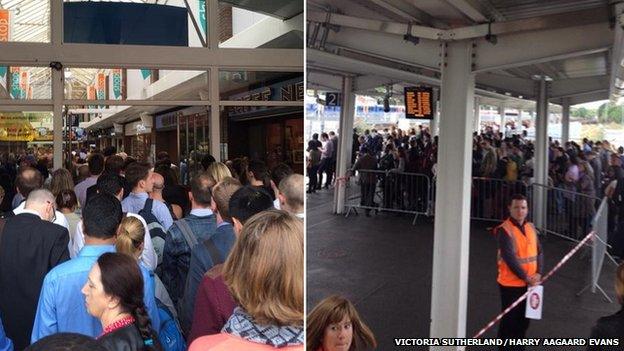
Commuters have been tweeting pictures of the queues at Clapham Junction
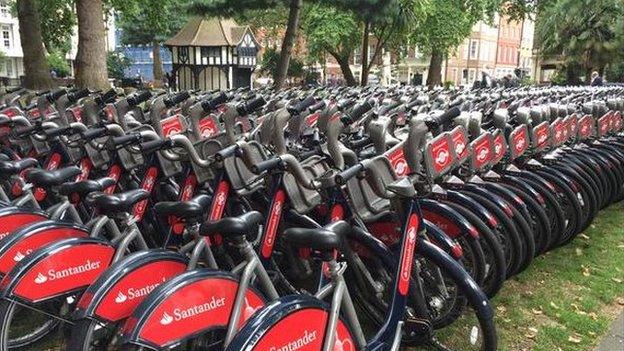
The temporary cycle hub in Soho Square was well stocked at 12:15 BST
A long-serving LU train driver, who wished to remain anonymous, told BBC News, "We get paid an amazing salary and the holidays are great too [43 days leave including eight bank holidays] but why should I be forced to work nights and more weekends when that is not what I signed up for? It's about the principle of changing our working conditions without discussions.
"I hate striking but I will continue to do so until the company listens or they make it illegal to strike.
"I feel sorry for commuters but instead of complaining to staff, they should complain to TfL and stand up for their rights too."
Commuters told the BBC they understood the reasons for the strike but they did not think "the impact on commuters was very fair".
Transport for London (TfL) have said that buses are being delayed by up to an hour, especially those travelling in zones one and two.
River bus service MBNA Thames Clippers tweeted, external: "We're experiencing high demand at piers due to #tubestrike & expect delays. Please allow extra time to travel."
Extra buses have been laid on for the strike and there are hundreds of bicycles available for hire from £2 at a temporary cycle hub in Soho Square, BBC London Travel reports., external
During the evening rush hour, there were 894 separate traffic jams around the city causing a combined 500 miles (804km) of tailbacks, traffic analysts TomTom said.
That was double the congestion of the morning rush hour, but it was not as bad as during the previous Tube strike in July when there were 1,445 jams and 761 miles (1,224km) of delays.
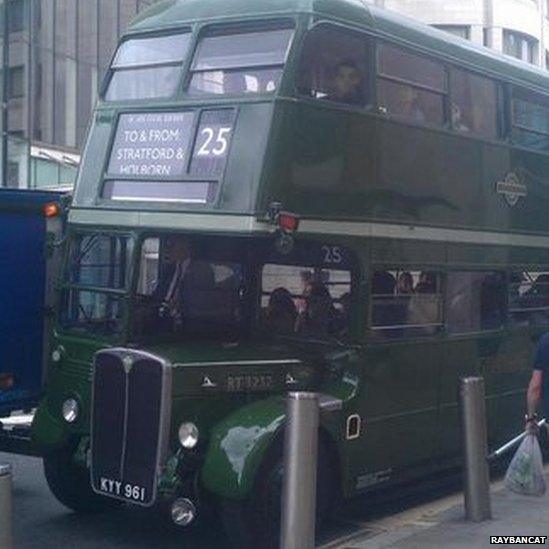
RayBanCat took this image of an old bus near Holborn Circus
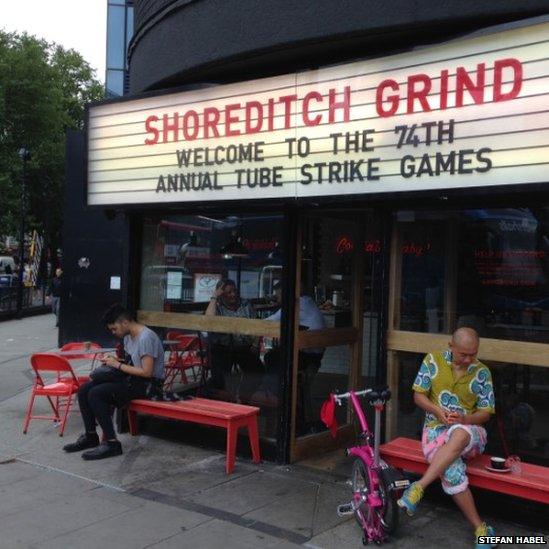
"May the odds be ever in your favour" as a coffee shop plays on the Hunger Games and sees the lighter side of the Tube strike
"With many Londoners away on holiday and no school runs, the roads were not as congested this morning as they were during the last strike four weeks ago," a TomTom spokesman said.
Transport for London said it would have a total fleet of 8,200 buses operating at peak times during the strike with an extra 250 vehicles leased from companies around the country and old buses including Routemasters being brought back into service.
But even those aiming to beat the crowds and setting out on their journeys by 06:00 BST faced travel problems.
Alessandra Bonomolo tweeted, external: "6:20am. Couldn't get on the first train - too crowded" while Roxy Baker said, external: "Not even 6:30 and you can barely get on the 205 at Bow Church... its first stop".
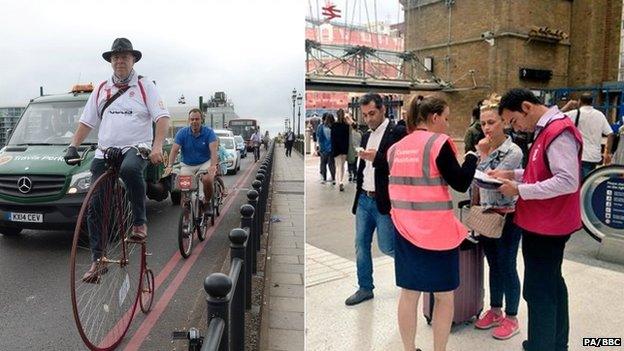
One commuter on Battersea Bridge took to the penny farthing to get to work while TfL 'travel ambassadors' have helped others
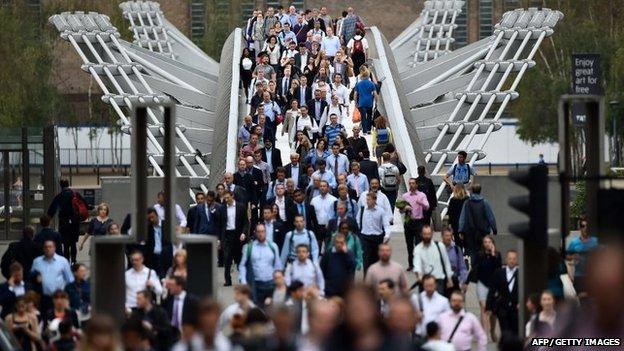
Commuters cross the river Thames on the Millennium footbridge during rush hour
People are being encouraged to use alternative modes of transport with some being very creative to reach their destinations.
Alan Price, 62, used a penny farthing bicycle to make the two-mile journey from his home near Battersea Bridge to Parsons Green.
'Boris bikes' on strike days
Strike-hit commuters hop on Santander Cycles
73,000
journeys in a day during July Tube strike
35,000
journeys is the daily average
-
11,500 bikes available in London
-
748 docking stations around the capital
-
11 extra pop-up hubs during Tube Strike
-
£300 maximum fine if not returned in 24 hours
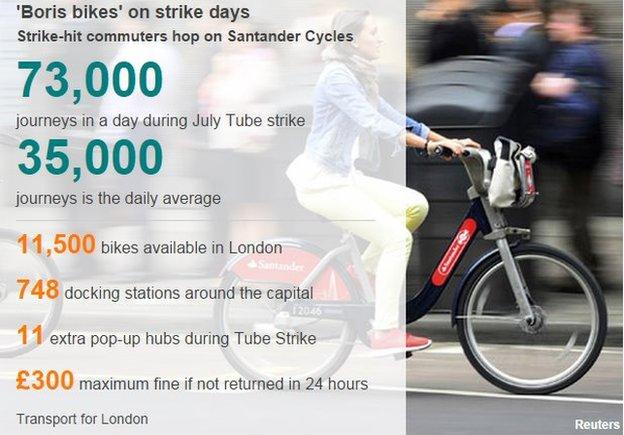
Steve Davison tweeted, external: "#tubestrike genius - just saw some guys flag down a London open top tour bus to get to work. Crazy line at bus stop versus an open top ride."
Commuters waiting for buses at Victoria station give their reaction to the strike

Getting around
An extra 250 buses are operating but cash will not be accepted by drivers and commuters must use Oyster or cashless cards
The Docklands Light Railway, London Overground, tram and Transport for London (TfL) rail services are running, although are expected to be much busier than usual
There will be additional river buses on the Thames
Extra bicycles will be available to hire from London's cycle hire scheme
The congestion charge remains in place
More than 600 "travel ambassadors" will be offering help and advice to travellers
Taxi marshals will be operating at some mainline stations.
There is also travel information available on the TfL website, external.

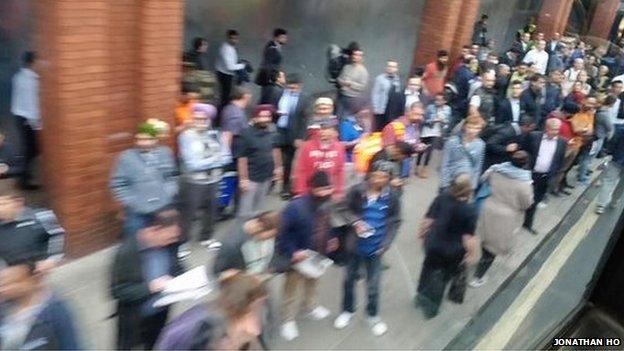
Jonathan Ho took this image from the bus he was on, showing queues of people in Paddington hoping to board it
The strike has also affected businesses across the capital in a variety of ways.
David Leam, director of infrastructure at London First, which aims to promote businesses, said people had generally been better prepared for the disruption compared to July's strike.
He said: "I think the last Tube strike was a bit of a shock... but people have learned from the experience so some have worked remotely or have adapted their journey.
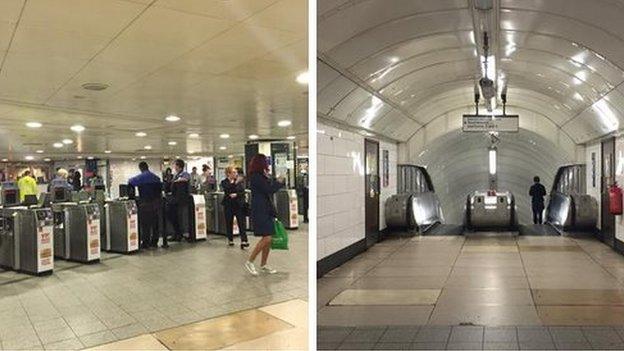
Oxford Street Tube station was deserted by 19:10 on Wednesday evening
"The businesses losing out more are probably those in hospitality. All the messaging last night was about making your journey early and getting home by 1830. Certainly it was quiet for some pubs and bars and restaurants although it's not a ghost town and there are still lots of tourists around."
The strike, which follows a 24-hour stoppage on 8-9 July, saw Tube staff leave work between 18:30 and 21:30 BST on Wednesday.
Members of Aslef, the Rail, Maritime and Transport union (RMT), Unite and the Transport Salaried Staffs Association (TSSA) are all involved in the dispute.
Many union members will be standing on picket lines throughout the duration of the strike, which is over concerns new rotas to accommodate the night service will mean greater weekend working.
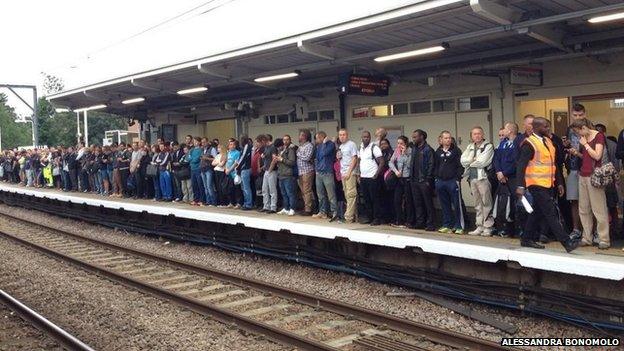
People at mainline train stations were facing long queues to board trains by 07:00
London Underground (LU) has apologised for the disruption, saying the latest offer - a 2% salary increase this year, an extra £200 per night shift for drivers for a limited time, and a £500 bonus for Night Tube staff - was aimed at improving work-life balance.
Mayor Boris Johnson called the latest offer "incredibly generous", and said he would not authorise any more money or negotiate while unions were "holding a gun to Londoners' heads".
He said: "The way forward is to get this excellent deal to their membership. They should call off this stupid strike and put the deal to their members.
"No driver is being asked to work more hours than they do today. "
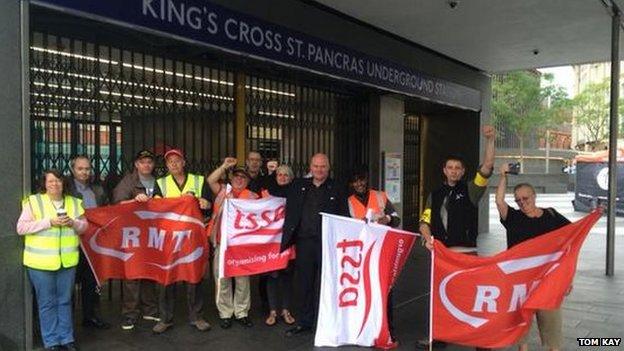
An RMT and TSSA picket line at King's Cross station
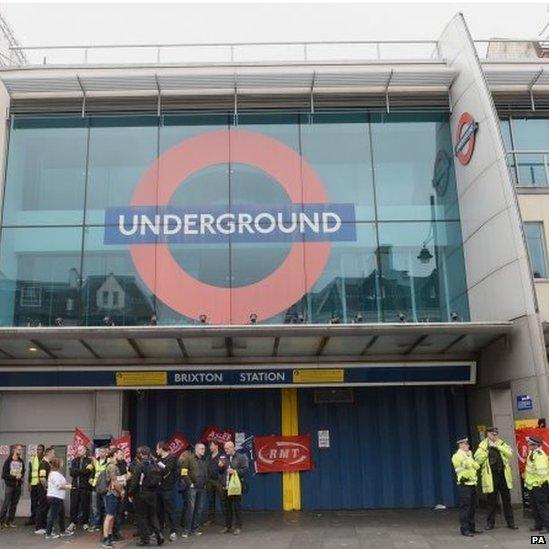
RMT members hold a picket outside Brixton Underground station
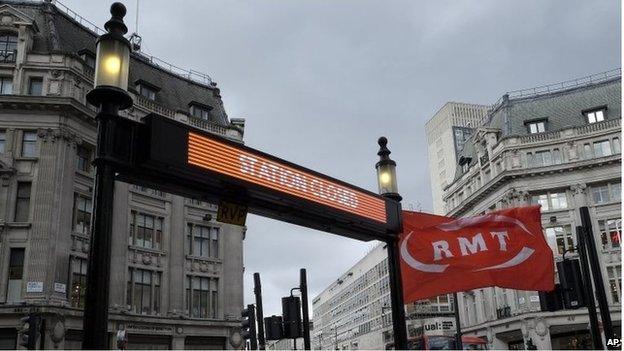
An RMT flag flies at the closed Tube station entrance at Oxford Circus
But Mick Whelan, the General Secretary of Aslef said: "The Tube driver works intensively in very awkward conditions. It affects their health, work-life balance and they don't have the best of lives."
He said the competency and skill levels required by Tube drivers exceeded that of bus drivers and as such staff needed to be compensated.
"We are not against the Night Tube if it's run in a reasonable and adequate manner... but I don't believe it can be delivered [by 12 September]," he said.
A striking Tube driver, who later admitted he was an RMT representative, phoned BBC London 94.9 to say he had seen the new rosters and they showed LU would be "spreading staff much more thinly" to maintain the Night Tube.

Commuters have been tweeting pictures of the queues at Clapham Junction
He said: "As well as being made to work more nights and weekends they're also being displaced and told to work 30 minutes up the line and that their duties can be changed at 24 hours' notice. But of course there's been no mention of that."
Steve Griffiths, LU's chief operating officer, told the BBC: "The Night Tube... cannot be at any cost. They're clearly not understanding our commitment to work life-balance.
"We've recruited 500 additional staff specifically to run the Night Tube and that's across stations and train operators.
"No-one's being asked to work extra hours... we've also committed that our train operators will have the same number of weekends off today as when they do Night Tube."
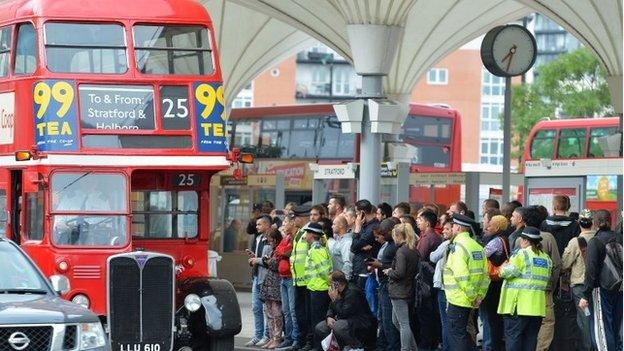
People queue for buses near Stratford station
One official from the RMT also told BBC London that members would "escalate action" in the run-up to the scheduled start of the night service.
Mr Johnson added he was "not fussed" about the night service starting on 12 September as planned, as long as it started in the autumn.
Wednesday's rush hour started early at Oxford Circus tube station

Key points of the dispute
The RMT, TSSA, Unite and Aslef unions say the dispute with London Underground (LU) is about workers' pay and conditions associated with the new night Tube working
Union members have voted 9:1 in favour of strike action. Aslef said 81% of its members responded to the ballot
The unions have rejected a deal including a 2% average pay rise for all Tube employees plus a £500 launch bonus for staff on Night Tube stations and lines
The unions say they want Tube workers to be fairly compensated for night working, which has been linked to poor health
LU says it put forward an "extremely fair revised offer"
LU says it is hiring 137 more train operators to work on the night Tube, which would result in existing workers doing "a few extra nights per year within the existing working week"
LU says no-one was being asked to work more hours than at present
The offer includes a pay increase in 2016-17 of RPI or 1%, whichever is greater, a £500 bonus for station staff in February 2016 after the completion of ticket office closures and customer service modernisation plans
Night drivers will also receive an extra £200 per night Tube shift during a short transition period, after which they will have the choice whether or not to work night shifts, under LU's latest offer.
- Published6 August 2015
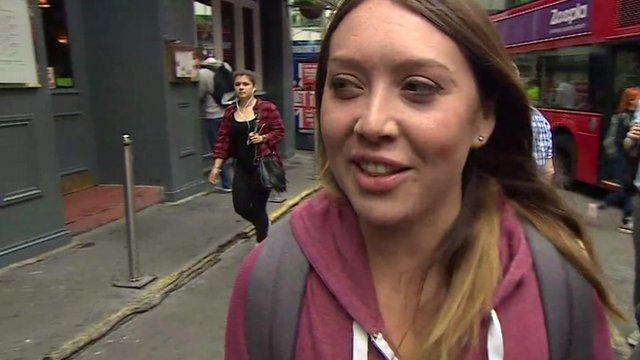
- Published6 August 2015
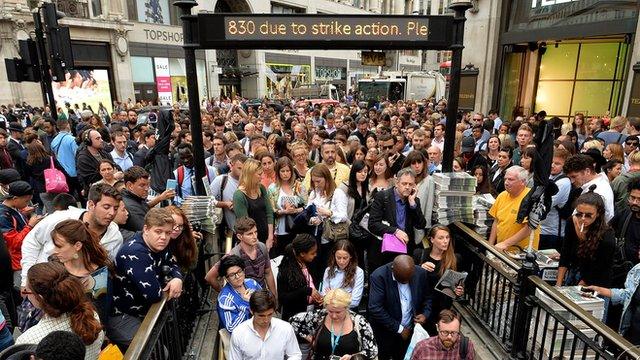
- Published24 August 2015
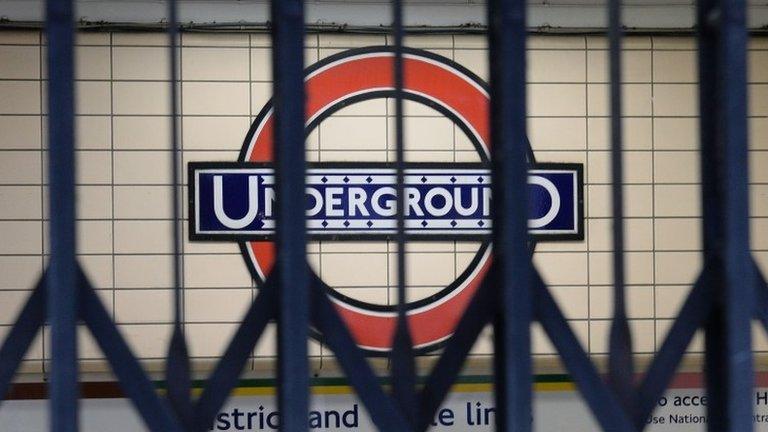
- Published5 August 2015
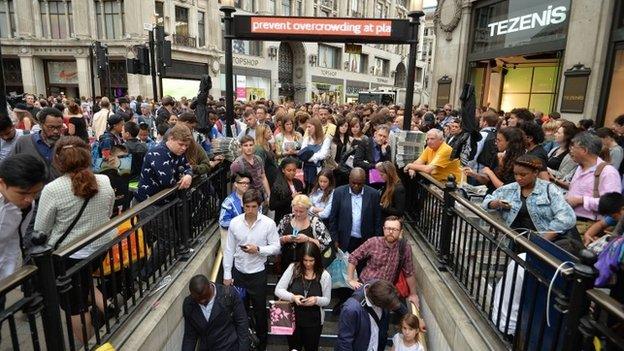
- Published5 August 2015
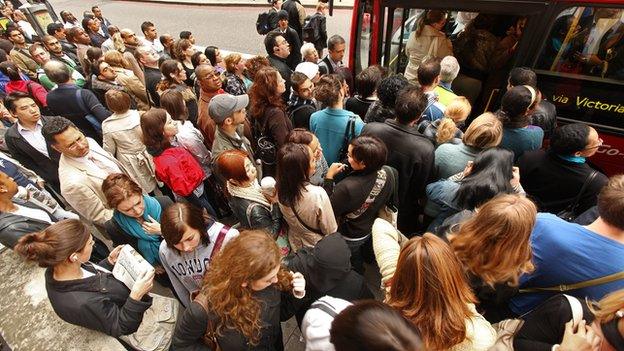
- Published5 August 2015
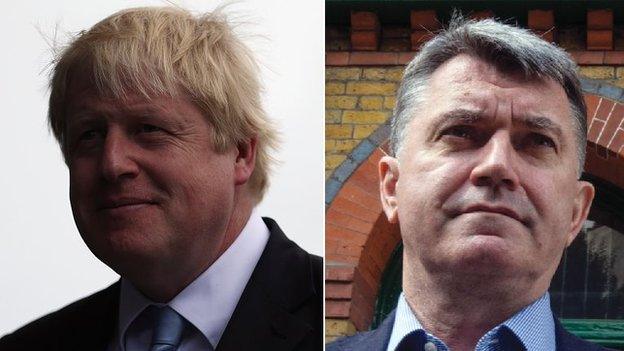
- Published31 July 2015
